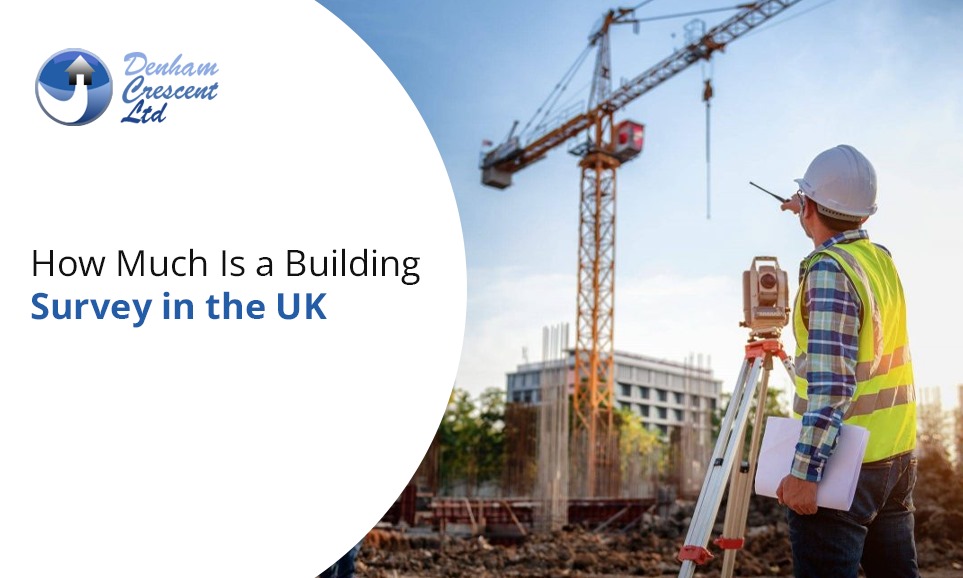How Much Is a Building Survey in the UK? A 2025 Cost Guide
27, Jun, 2025
If you’re buying a house or planning a renovation, you may be wondering: how much is a building survey? It’s one of the most common questions people ask before making a property investment, and rightly so. A building survey helps you understand the true condition of a home, which can save you thousands in unexpected repairs.
In this guide, we’ll walk you through what a building survey includes, when you need one, how much it costs in 2025, and how to make sure you’re getting the best value for your money.
What Is a Building Survey?
A building survey, also known as a complete structural survey, is a detailed report prepared by a qualified surveyor. It provides comprehensive information about the property's condition, including any faults, safety risks, damp issues, or structural concerns.
Unlike a mortgage valuation, which is mainly for the lender, a building survey is for you. It gives you a clear picture of what you’re buying or the condition of your current home before you start any major projects, such as a loft conversion or extension.
How Much Does a Building Survey Cost in 2025?
The cost of a building survey in the UK varies depending on the type of survey, the property's size and age, and its location. In general, here’s what you can expect to pay:
For a small flat or 1-bedroom home, the cost usually starts at £600
For a 3-bed semi-detached property, it may be between £750 and £950
For a large or complex home, especially older properties, the price can go up to £1,500 or more
If the property is located in areas like London or South East England, prices may be slightly higher because of demand and property complexity.
What Are the Different Types of Property Surveys?
When people ask “how much is a building survey?”, they’re often unsure which type they actually need. There are three main types of property surveys offered by RICS (Royal Institution of Chartered Surveyors):
1. Level 1: Condition Report
This is the most basic option. It’s mainly used for new or nearly new homes that are in good condition. It won’t include much detail about repairs or structural issues.
Cost: Around £250 to £400
2. Level 2: HomeBuyer Report
This is suitable for properties in fairly standard condition. It includes advice on repairs, damp checks, and sometimes a market valuation.
Cost: Between £400 and £700
3. Level 3: Building Survey (Full Structural Survey)
This is the most detailed report. It’s ideal for older, larger, or unusual homes, as well as for anyone planning major renovations. It provides detailed information about the structure, materials, defects, repair work, and potential issues that may arise.
Cost: Usually £600 to £1,500, depending on property size
If you're buying an older property or planning structural work like a loft conversion or side extension, the Level 3 building survey is your safest bet.
Do You Need a Building Survey?
Not everyone needs the full survey, but in many cases, it’s strongly advised. You should consider getting a Level 3 Building Survey if:
The home is over 50 years old
The building has had previous renovations or extensions
You’ve noticed cracks, damp patches, or other signs of damage
You’re planning big changes like a loft conversion, kitchen extension, or structural alterations
You’re buying at auction, or the house has been empty for a long time
What Happens During the Survey?
A surveyor will visit the property and conduct a thorough inspection, typically lasting a few hours, depending on the property's size and complexity. After that, you’ll receive a detailed report within about 3 to 7 days.
The report will highlight:
Visible and hidden defects
Signs of damp, rot, or subsidence
Structural issues with walls, floors, or the roof
Problems with drainage, insulation, or electrics
Advice on repairs, maintenance, and future costs
In some cases, the surveyor may recommend bringing in a specialist (for example, a damp expert or structural engineer) for further checks.
Can You Negotiate After the Survey?
Yes, and many buyers do. If your survey finds significant issues, such as roof repairs, damp, or drainage problems, you can renegotiate the sale price with the seller.
You can also use the report to plan your renovation budget more accurately. For example, if you’re considering adding a loft conversion but your roof structure isn’t suitable, the survey will highlight this.
How to Choose the Right Surveyor
When looking for someone to carry out your building survey, make sure they are:
RICS-accredited
Experienced with homes in your areaTransparent about costs and what’s included
Willing to speak with you about the report afterwards
Avoid surveyors who offer very low prices but use templated reports that don’t give useful advice. A thorough building survey should be tailored to your property and your specific needs.
How Denham Crescent Can Help
At Denham Crescent, we understand that every great property project starts with strong foundations, and that includes knowing the condition of your home. Whether you’re buying a new property, preparing for a loft conversion, or planning a side or rear extension, we’ll guide you through the whole process.
We can help you:
Connect with trusted surveyors to carry out building surveys
Understand the report findings and how they impact your project
Plan next steps based on real structural knowledge
Ensure your property meets all building regulations and planning standards
If you’ve just received your survey and are wondering what to do next, whether it’s repairs, design, or extensions, Denham Crescent is here to help.
Share:






